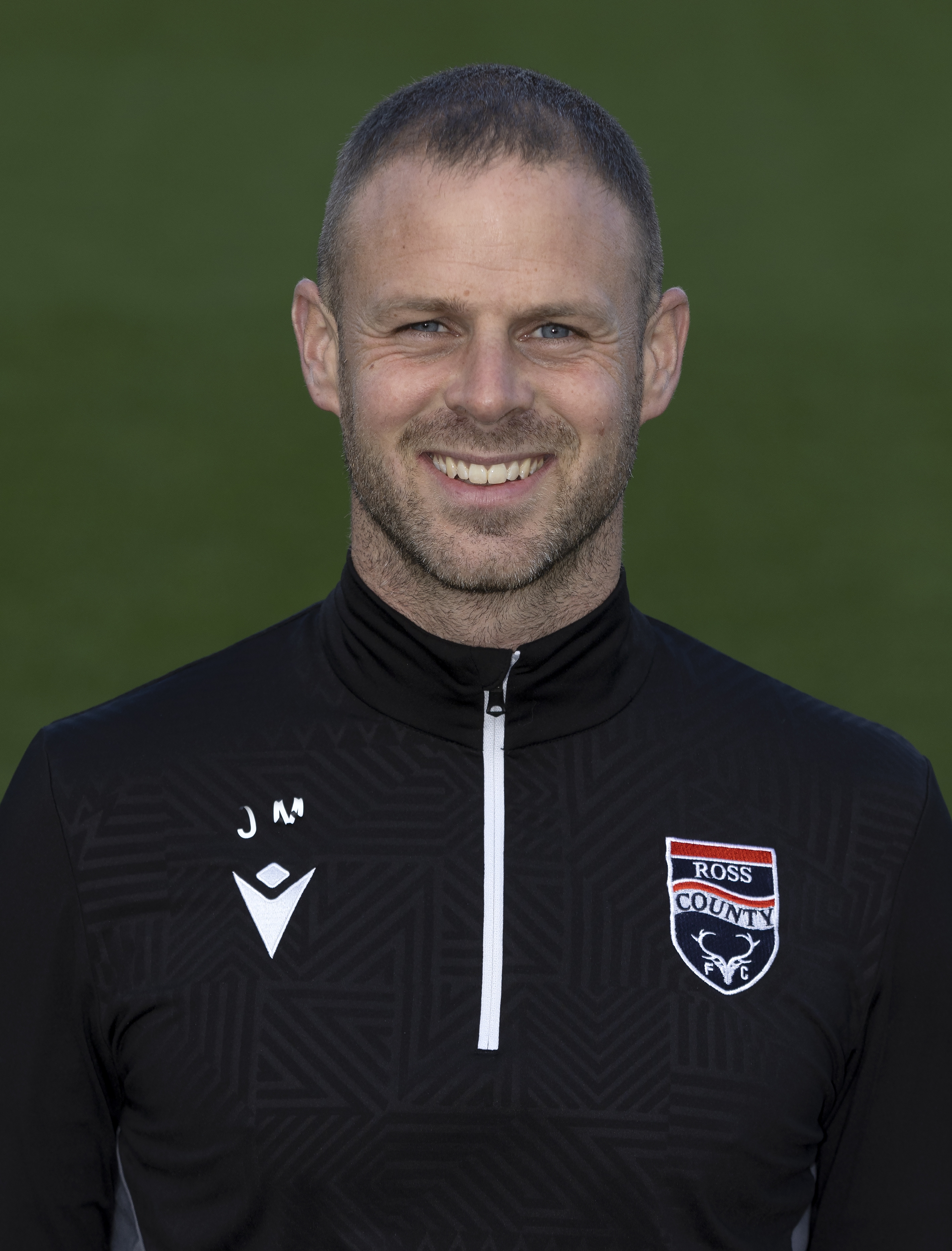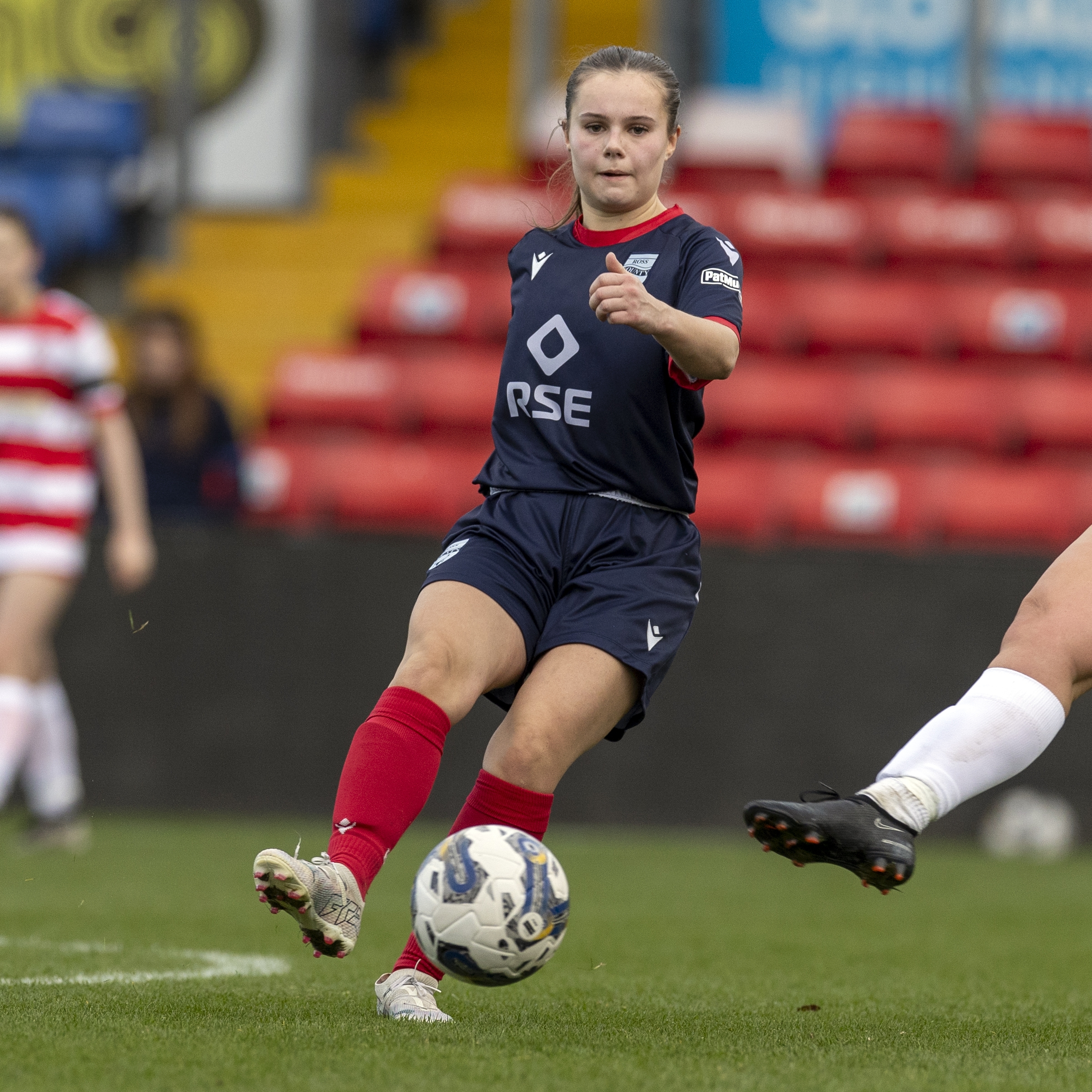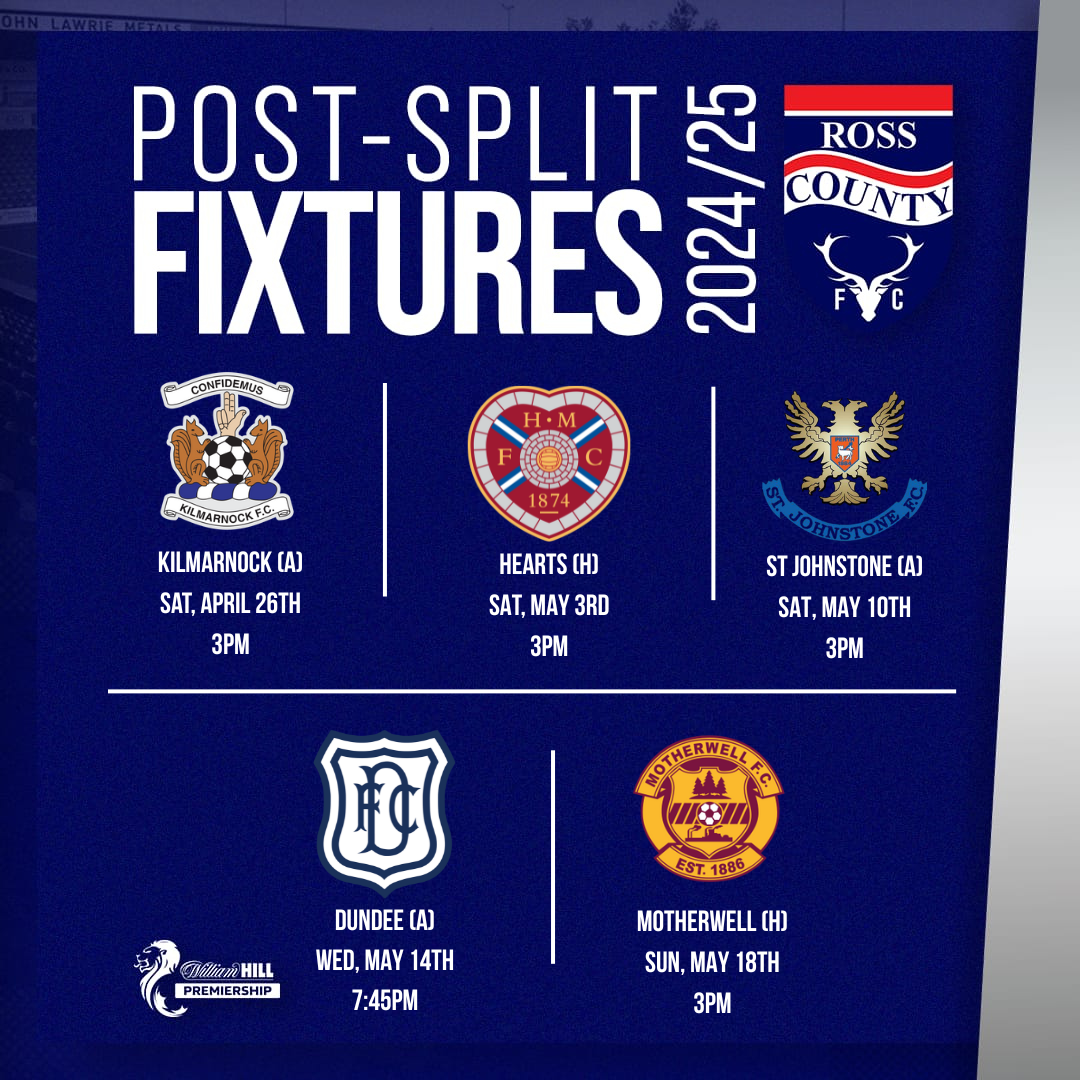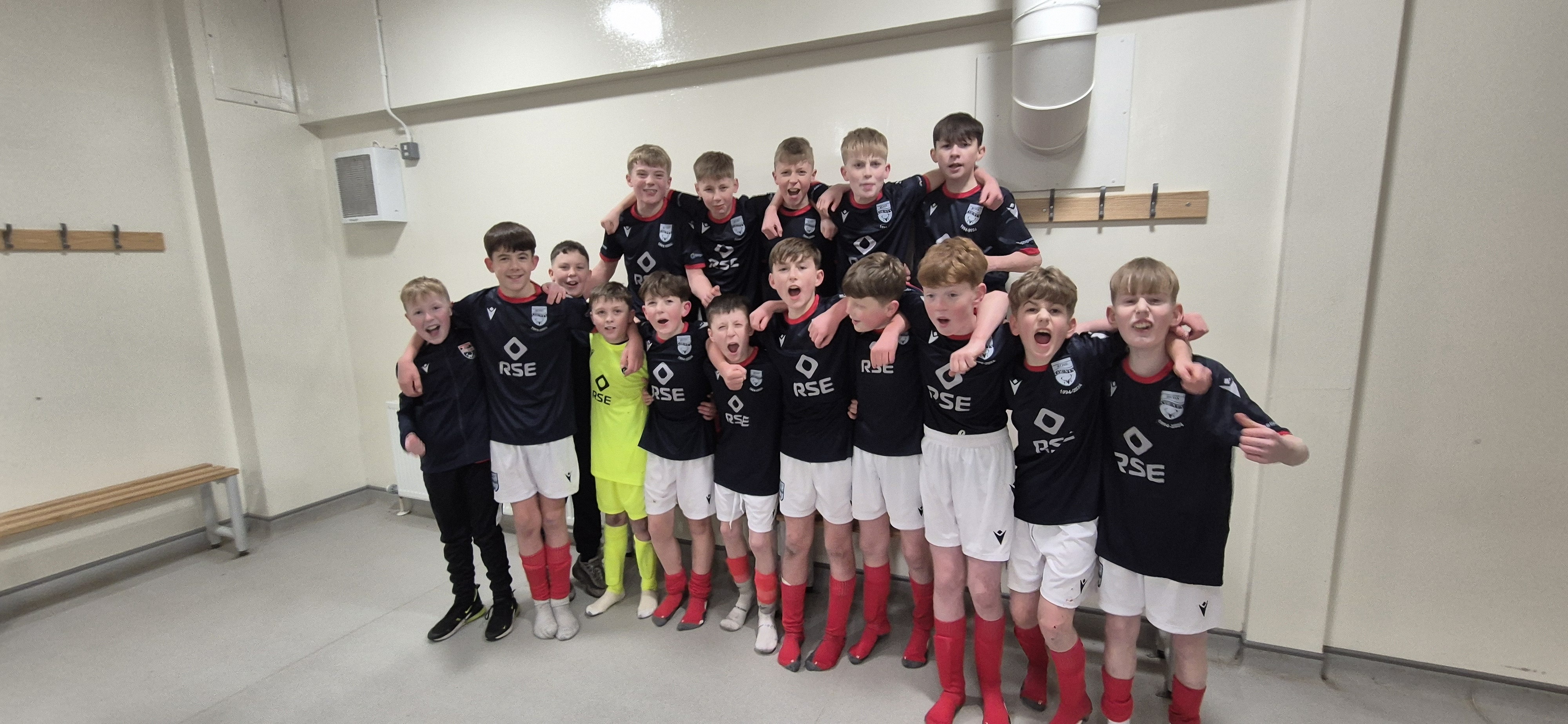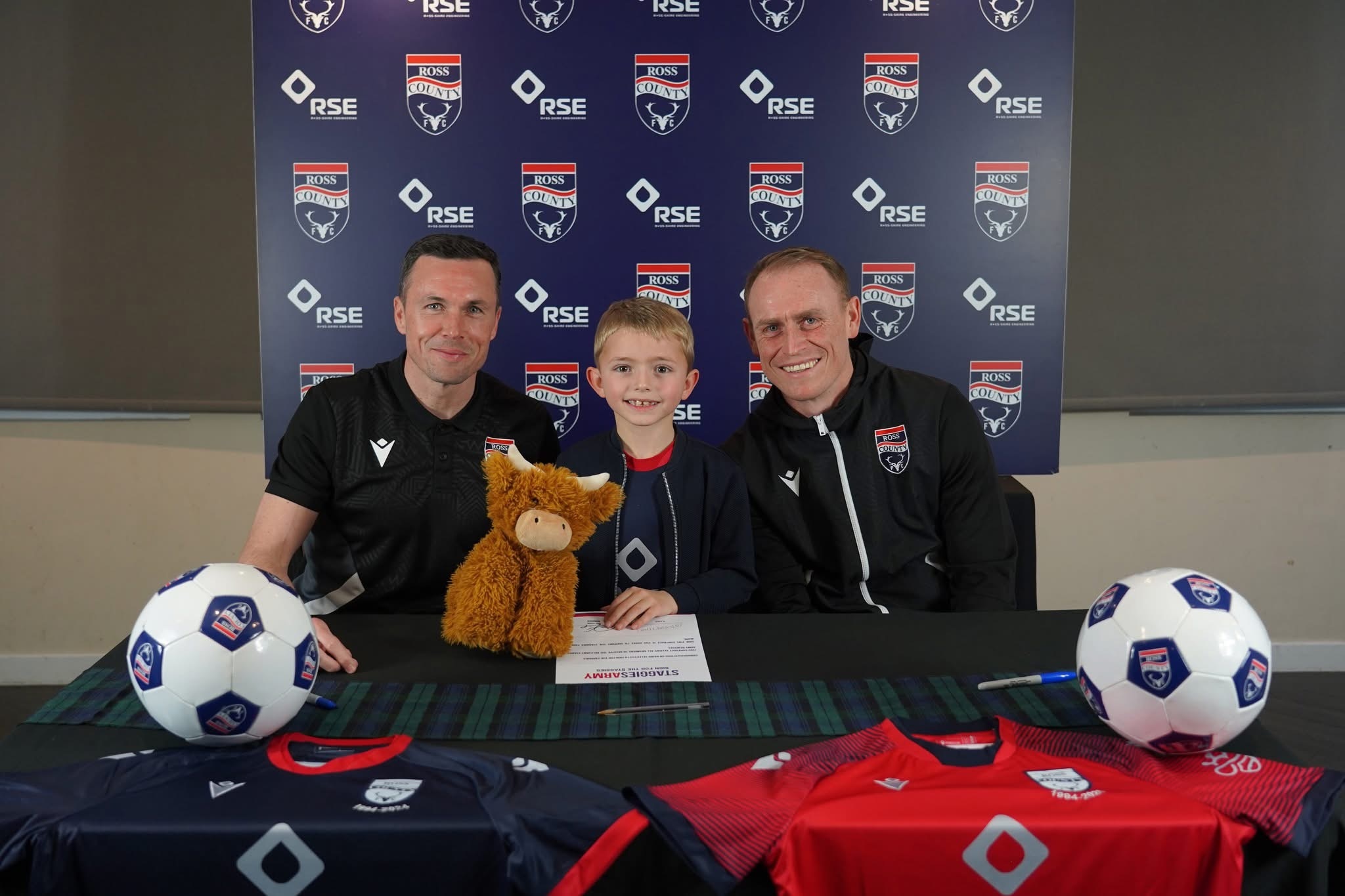Club
The team behind the team: Jason Moriarty
03/02/2025
Football has changed hugely over the last decade or so, with the introduction of sports science, a key part of that.
In the first of our series of meeting the team behind the team, Roy Templeton talks to Ross County's Head of Performance Jason Moriarty about the science behind the sport.
Imagine the scene. You've just joined a new company and as part of your welcome pack you're told that you'll have to wear a GPS pod inserted into something pretty much like a sports bra and which charts your every movement.
In many such companies you might be looking at a mass walk out - so what makes professional sport so accepting of the modern day version of Big Brother?
Well it's the science stupid, of course it is, but why is professional sport so keen to embrace the very latest technology as they seek a competitive edge over their competitors?
County's Head of Performance Jason Moriarty is the town crier of all town criers for sport science, believing as he does, that the more athletes know about their individual vital statistics, the more they're likely to perform at the very top of their game.
Bringing your A-Game to the Premier League pitches week in, week out of course is what makes the difference between winning and losing - and the advances in sport science are now seen as key parts of bringing success rather than failure.
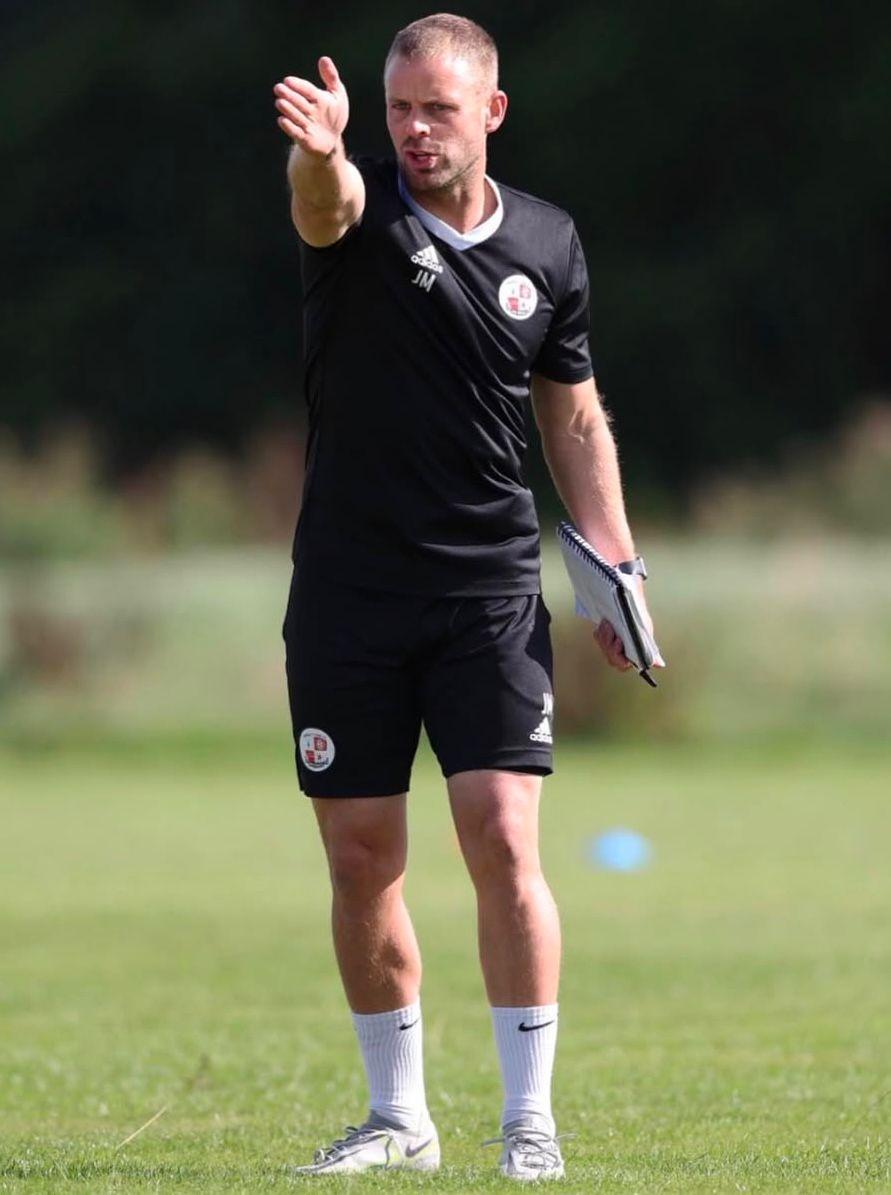
Fans of an older vintage may scratch their heads a bit at changes in the game such as increased substitutions, tailored diets and the use of fitness and medical data but it's all now taken for granted by clubs big and small.
Moriarty, who arrived in Dingwall armed with his box of GPS tricks and laptop last March, plyed his trade in the very different locations of Wimbledon, Milton Keynes, Reading and latterly Brunei, before heading to the Highlands. Brunei, where he spent three seasons with the ruling Sultan's football team, was a very different challenge for him, being based in a largely Muslim country where training regularly had to work round fasting and very different eating patterns. Ramadan brought particular challenges, resulting in occasional unorthodox game patterns which would see goalkeepers head to the ground midway through halves seeking treatment so that their teammates could take on additional nourishment!
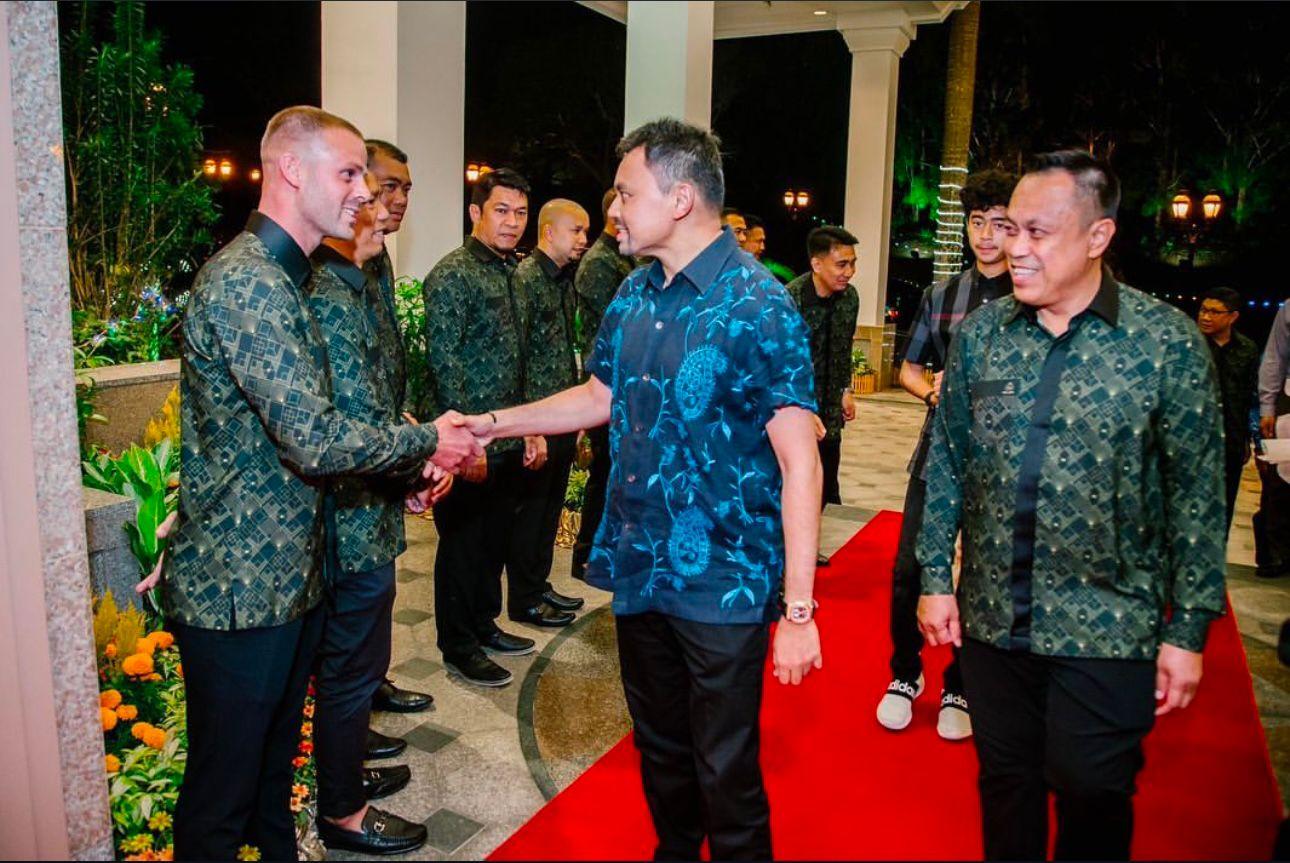
As a teenager, football was in the family with his older brother Adam playing for Wimbledon and Fulham while also representing Ireland at youth level.
But Jason had his sights on personal fitness and sport science rather than playing and so set about getting professional qualifications, via a Roehampton University degree, while also gaining practical experience working with a club, largely Wimbledon.
The non-wombling Wimbledon did well when he worked with them, gaining promotion to the National League as the club also moved from part-time to professional.
Wimbledon and County, he explains, are quite similar beasts with both battling the odds against scepticism and sometimes outright hostility from other clubs based on geography and history.
"They're both clubs built on good, honest, hard work and the spirit of togetherness they both show is pretty special," he says.
And both are very receptive to the demands of sports science which includes the GPS data gathering on fitness levels, body strength and heart monitoring.
Add in enhanced clothing, the use of video analysis and good diet and you've got the main ingredients of the sports science package.
The biggest change in the game he loves, he says, is the use of wearable technology such as the GPS Pods which each player wears during both games and training sessions.
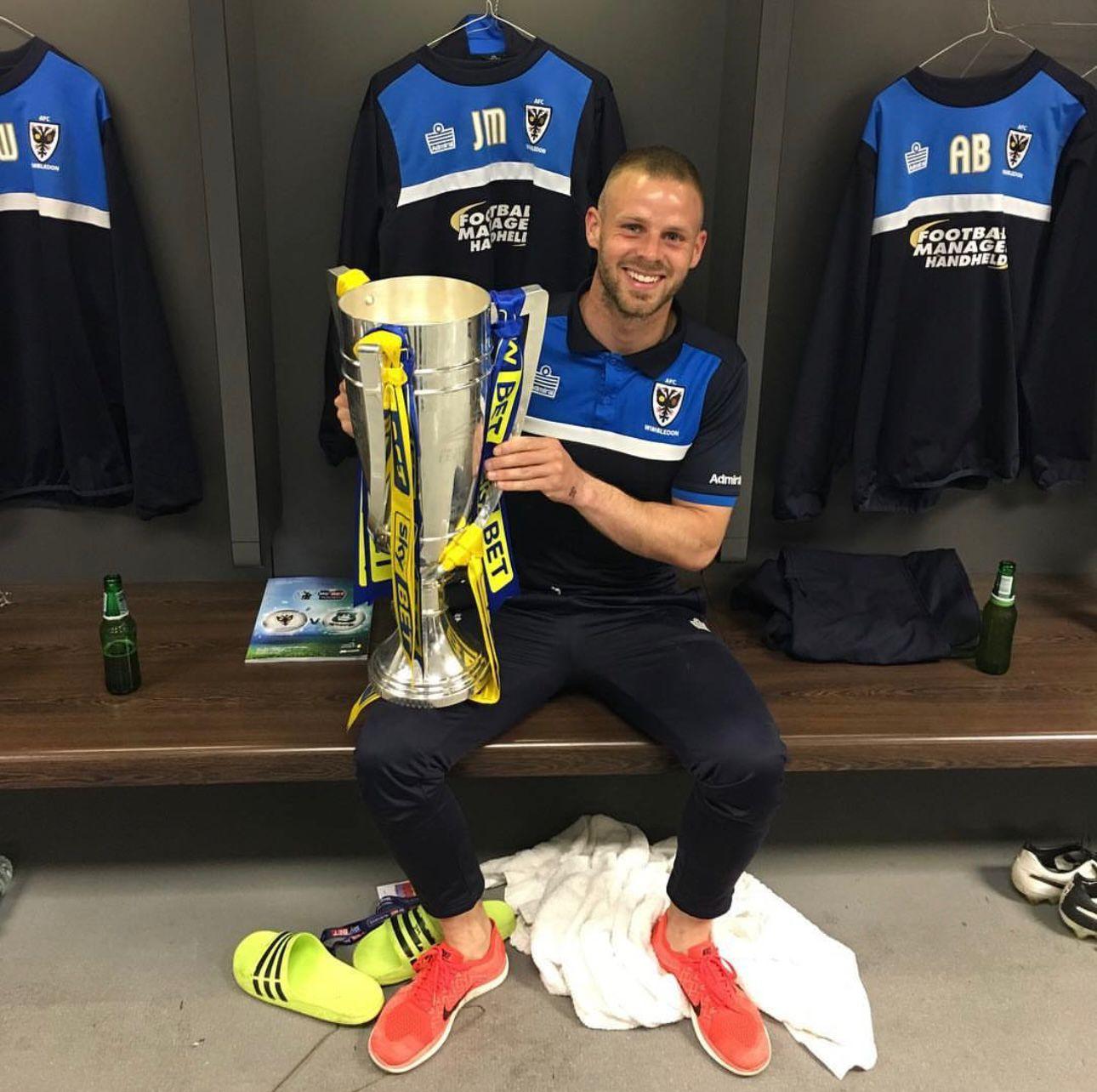
The data collected from them straight to his laptop can show for each and every player whether they're likely to maintain their energy levels as games approach the last quarter.
Every player has their own individual data with different positions requiring different fitness techniques such as hard running, sprinting or quick turning ability. Each player also has a maximum impact level percentage - and when that is reached during games, the information relayed to the manager and coaching staff can help determine substitutions.
"The data informs rather than decides whether players stay on or go off," he's at pains to explain, "but there's no doubt in my mind that it helps get a much better picture of whether a player is likely to continue giving the same effort or perhaps has even picked up an slight injury that we might not even have known about."
And all the individual data collected during games - and which players take with them when they move to a new club - helps boss Don Cowie and his support staff of coaches, analysis and medical/physio experts.
When the players start their new week following a day off after a game, for example, their training regimes are helped framed by whether they need particular fitness exercises, with individual 90-minute training sessions geared for each and every player depending on what their data has shown.
So following a breakfast at the club specially prepared by club chef Ben Senior, the players will go over the previous game helped with video analysis before indoor warm up sessions to either tighten or loosen muscles.
On Mondays following a Saturday game, they'll have a less demanding training session, followed by a more demanding one on the Tuesday. Wednesday is another day off and then it's another more demanding session on the Thursday before a lesser one for the day before a game. On each training day, chef Ben will also prepare lunch for the players based on giving a good balance of protein and carbs.
"Two legs is better than four (chicken rather than beef)," explains Moriarty, "but no legs (fish) is better than two!"
Protein drinks are also thrown into the mix between mealtimes with the aim of making every player as close to peak fitness and health as possible.
The sports science overriding belief is that rest, sleep and diet are just as important as the physical exercise done through training, hence the different patterns adopted depending on when a game is played.
Previously mentioned older fans are more likely to question some of the new methods used commonly now at every club but Moriarty insists they help reduce injuries, prolong careers and put players in better shape for their post-football lives than ever before.
No one can be sure how the advance of technology can impact further on professional sport, but there's no doubt it's come a long way even in the last decade or two.
But don't be surprised if you overhear a conversation at a match in the next decade or so that debates the introduction of further technological change.
"That big guy AI playing up front looks as if he can play a bit....".
Don't bet against it.
